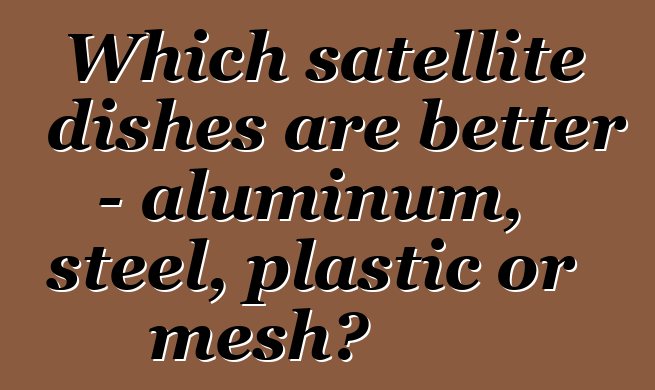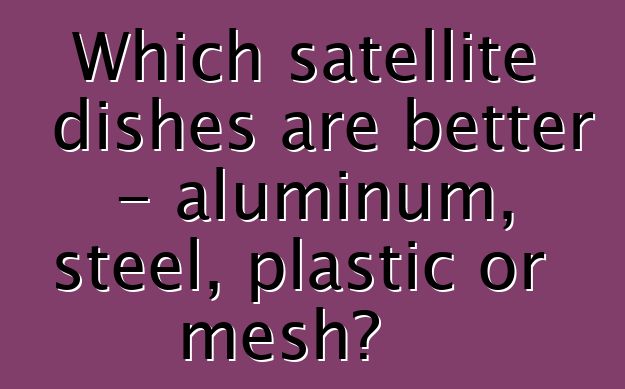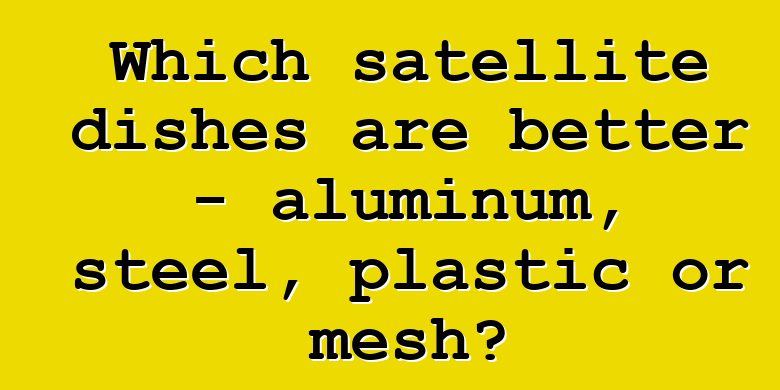





The most commonly used antenna material is aluminum. It provides sufficient strength at acceptable weight characteristics. Steel antennas are cheaper but heavier. In addition, it is necessary to pay attention to how the reflective surface of the antenna is protected from corrosion. The fact is that a very thin near-surface layer of metal is involved in the reflection of an electromagnetic signal. If it is damaged by rust, it may reduce the efficiency of the antenna. Plastic mirrors with a thin metal coating are very susceptible to shape distortion due to various external influences - temperature, prolonged loads, etc. Mesh antennas are resistant to wind loads, have good weight characteristics, but they have proven themselves poorly when receiving Ku-band signals. It is advisable to use them for receiving C-band signals.





